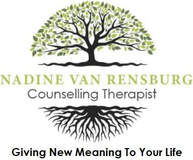News & Advice
Get advice and news for a happier and more fulfilled
life.
life.
|
The definition of resilience is adapting and responding positively to stress and misfortune. Resilience isn’t an empty idea: individuals can and do respond differently to the challenges of life. This is particularly relevant to those who support others in the role as a care-giver – whether as a therapist, doctor, nurse, looking after elderly parents, looking after sick children, or just being a friend to someone in need. Resilience is an acquired skill. So how do you make sure you come out on top?
Here are some guidelines to building resilience: 1. Let yourself feel lousy occasionally. True resilience doesn’t mean you never get discouraged. If you never encounter painful struggle, you never get to discover your resilience. This is why pain is almost universal among the resilient - it happens. Resilience isn’t about masking your pain and pretending everything is fine - you’re human, not a machine. In short, what matters isn’t how you feel in the moment, it’s that you overcome it and stand back up. 2. Know that you’re the only one who can control your fate. Take decisive action. It’s tempting to use fate as an excuse for your future but take control as best you can. 3. Keep yourself value-centred. It’s all fine and good to make executive decisions, but if the right decision isn’t clear, it can be easy to make mistakes. Studies have found that having a moral compass - an internal system of values and ethics - goes along with higher resilience. 4. Recharge with a workout. Dealing with setbacks can be exhausting, so it’s important not just to push your way back too hard, but to rest and recharge along the way. Exercise is often a mini metaphor for life’s larger challenges: We set short-term goals that build mental momentum to reach larger goals in the long term. 5. Don’t set unrealistic goals. Challenge yourself and aim high but be fair to yourself. 6. Express your feelings. According to a study of student nurses doing emotionally exhausting work in a literal life-or-death environment, those who were able to draw on support from friends and colleagues, and genuinely express their emotions from sorrow to frustration to joy, were less prone to burnout. Tell people you trust how you really feel. Be honest and authentic rather than trying to please everyone and you’ll come out feeling relieved and sane. Let me help you build resilience - [email protected] or on 084 779 4889. Visit my website on www.nadinetherapy.co.za. Credit: psychologytoday.com
0 Comments
Your comment will be posted after it is approved.
Leave a Reply. |
AuthorI use a meaning and value based approach to help people conquer their problems, challenges, fears and obstacles for a happier and more fulfilled life. Archives
November 2021
Categories |
© 2024. NADINE VAN RENSBURG COUNSELLING THERAPIST. ALL RIGHTS RESERVED. COUNCIL OF COUNSELLORS REGISTRATION: IR 10177
Please Read Our Privacy Policy
Level Four B-BBEE Contributor. Council of Counsellors Registration: IR 10177. Viktor Frankl's Institute SA (VFISA) Registration: 50155. Professional Member of International Association for Counselling (IAC). Professional Member of Mediation Academy Accredited in SA and Internationally by ADR International Register, SAAM (South African Association of Mediators), NABFAM (National Accreditation Board of Family Mediators) and ISO9001 Certified.
